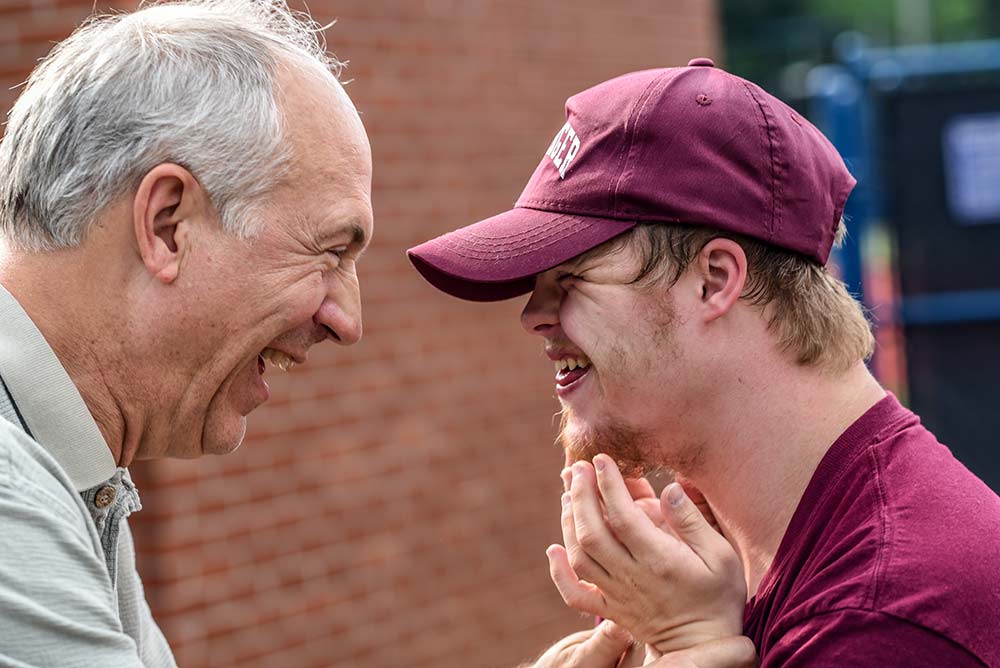Widening the Circle: Helping Loved Ones with Special Needs Make Friends
Not many things are comparable to the joy that friendship brings. Whether the bond was built during your childhood or established after a nasty fight, friends make life easier. It’s no different for a special needs individual. In fact, friendships can even be beneficial. For individuals with special needs, friendships are “extremely valuable for helping them improve their social skills,” shared behavioral analyst Teka J. Harris.

Many adults cared for at home by loved ones through the adult foster care program, may have special needs due to conditions such as autism or cerebral palsy. If you provide care for someone with special needs and you want to ensure they tap into the social side of life, below are some tips that you can apply right now.
1. Lead by Example: Learn Social Skills and Model Them
Demonstrate the behavior you’d like to see; take time to hone your own social skills. By refining your understanding of social interactions, you will be equipped to teach your loved one how to relate to others.
According to author Daniel Goleman, Emotional Intelligence, or the ability to connect with others effectively, has five main components:
- Self-awareness: The ability to identify your own emotions and how they work.
- Self-regulation: Knowing how to handle your emotions.
- Internal Motivation: Understanding how to motivate yourself instead of relying on external motivations.
- Socialization: Steering your relationships and navigating social situations like conflict.
- Empathy: An awareness of others’ emotions.
Consider how you can work on these skills yourself, then put them into practice by joining a club or trying a new group activity.
2. Fill the Calendar: Organize Social Activities
Whether the special needs individual you are caring for is a child, young adult, or older adult, try to schedule age-appropriate, meaningful social activities for them to encourage interacting with others. This will energize them and help them to express themselves in a safe space. When planning social activities for someone with special needs, it’s essential to consider their interests, preferences, and abilities. Ideas include:
- Art and Craft Workshops: Engage individuals in creative activities like painting, drawing, or crafting. Attend local art classes or organize sessions at home.
- Music Therapy: Explore the therapeutic benefits of music by attending concerts, music therapy sessions, or a music group.
- Nature Walks: Spend time outdoors in a calm and natural environment. Visit parks, nature reserves, or botanical gardens.
- Adaptive Sports: Explore adaptive sports, competitive or recreational sports for people with disabilities.
- Sensory-friendly Movies or Performances: Attend sensory-friendly showings at movie theaters or theaters that are designed to accommodate sensory sensitivities.
- Cooking or Baking Classes: Learn and enjoy the process of preparing simple recipes. Attend classes or organize cooking sessions at home.
- Social Clubs: Join local social clubs or support groups for individuals with similar needs. This provides a supportive community and opportunities for social interaction.
- Game Night: Play board games or interactive video games. Choose games that are suitable for their cognitive and physical abilities.
- Community Events: Attend local community events, fairs, or festivals, which provide opportunities for socializing in a relaxed setting.
- Volunteer Opportunities: Explore volunteer opportunities in the community to provide a sense of purpose and social connection.
3. Get Real: Use Suitable Technology
While digital interactions aren’t as powerful as physical, in-real-life (IRL) encounters, they can still be meaningful. If you’ve lived through the 2020 pandemic, you will agree with us. Help the special needs individual you care for to connect with friends and relatives on social media networks. Some platforms can help them to make friends and monitor the lives of others also living with special needs. Just make sure they use propper online safety practices such as encouraging privacy and not posting identifiable information.
The individual you care for will experience a much better quality of life with the added aspect of friendship. Good luck on your journey helping your loved one in this area. As you assist, remember to let go and allow them to organically learn from their social interactions as they unfold.
Are you currently caring for someone at home? Mass Care Link can help you, a diligent caregiver, access the financial assistance you need. Contact Mass Care Link today to learn more.
